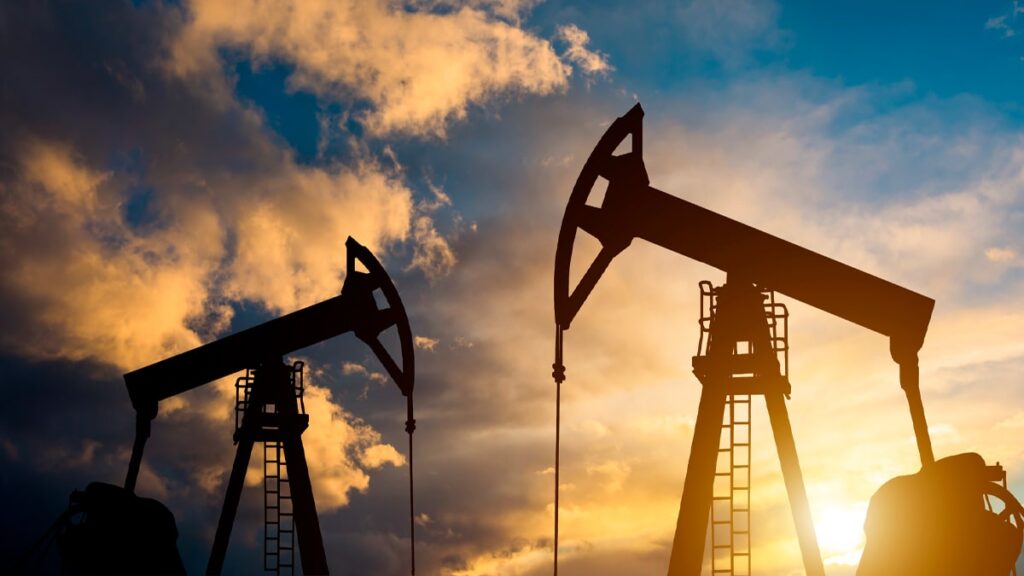India Is a net importer of crude oil and heavily depends on other nations to power its economy this is the reason why India’s petrol and diesel prices are high.
The central and state governments impose various taxes on petrol and diesel, including excise duty, value-added tax (VAT), and cess. The tax structure on petrol and diesel is complex, and the rates vary from state to state.
In this article, we will discuss the taxes on petrol and diesel in India, the Factor affecting fuel prices, and the current price rate of petrol and diesel in various states.

Table of Contents
India’s Petrol and Diesel Production
India is a net importer of crude oil but has tremendous refining capacity with both private and public sector firms establishing a supply chain to get the energy for the country.
India only produces 30% of the oil from the oil wells it has and the rest is imported. With the increasing demand for crude oil for the fastest-growing economy, India is going to get the oil from various sources especially countries like Iraq, Iran, Russia, and Saudi Arabia are key players in this.
India’s most crude oil source is the middle east with the recent surge of Russian oil due to the discounts provided by Russia. Currently, Russia is the biggest supplier of crude oil for India.
India also has plans to decrease its dependence on crude oil by investing in Electric infrastructure, Hydrogen fuel, and the Mixing of ethanol with petrol, etc. are some of the options that India is exploring.
Energy is the most important to a country’s economy so, securing the energy source is the primal important for any country.
For India which is the fifth largest economy and the faster-growing economy, it is of utmost importance to have a diverse supply of crude and India does not get dependent on a single source of oil.
Factors Affecting Fuel Prices
The following are the factors affecting fuel prices in India-
Geopolitics
Geopolitics means politics at the global level meaning that instead of two or more political parties various countries engage in politics for their respective country’s interests.
Geopolitics influences both politics and economic factors and hence oil is the core element to this. For most of the 19th century, industrialization was the epitome of development and it was fueled by Crude oil.
The countries who want to establish themselves as Superpowers had the oil well guarded and reserved by partnering with major oil-producing nations and developing an ecosystem of oil monopolies.
So, who so ever want the oil had to comply with the policy and dictation of the Superpower otherwise the oil supply to the nation gets sanctioned or it will attract other sanctions. This whole geopolitical game is played out and which resulted in the world we live in.
In India, geopolitical factors such as tensions with neighboring countries, fluctuating global oil prices, and trade policies of major oil-exporting countries have a significant impact on fuel prices.
Production
The production of crude oil is another major factor that affects fuel prices. India is a net importer of crude oil and depends heavily on imports to meet its domestic demand.
The production of crude oil by oil-producing countries (OPEC) is influenced by various factors such as weather, natural disasters, and geopolitical tensions. Any disruptions in the production of crude oil can cause a shortage of supply and an increase in prices.
The followings are the OPEC Countries and OPEC Plus countries in the world
- Islamic Republic of Iran
- Iraq
- Kuwait
- Saudi Arabia and Venezuela
- Qatar (1961)
- Indonesia (1962)
- Libya (1962)
- the United Arab Emirates (1967)
- Algeria (1969)
- Nigeria (1971)
- Ecuador (1973)
- Gabon (1975)
- Angola (2007)
- Equatorial Guinea (2017)
- Congo (2018)
- Azerbaijan
- Bahrain
- Brunei
- Kazakhstan
- Malaysia
- Mexico
- Oman
- Russia
- South Sudan
- Sudan
Supply and Demand
The principle of supply and demand also plays a major role in determining fuel prices. When the demand for fuel is high and the supply is low, the prices go up, and vice versa.
Demand for fuel is driven by various factors such as economic growth, transportation needs, and weather conditions.
In India, the demand for fuel has been growing steadily due to rising industrialization and urbanization, leading to an increase in fuel prices globally as well as domestically.
Inflations
Inflation is another significant factor that affects fuel prices. Inflation is the increase in the prices of goods and services over time.
When the inflation rate is high, the prices of fuel also tend to go up. This is because the cost of producing and distributing fuel also increases with inflation.
Taxes
The above factors are the factor that affects the country in importing oil, however, taxes are a factor that is controlled by the country.
Taxes imposed by the government also have a significant impact on fuel prices in India. Both the central and state governments impose taxes on petrol and diesel.
The central government levies excise duty and additional excise duty, while the state governments levy value-added tax (VAT) and other taxes.
The taxes contribute a significant amount to the retail price of fuel, making it more expensive for consumers which can be detailed observed by understanding the tax structure of petrol and diesel in India.
What is the Tax Structure of Petrol and Diesel in India?
The following is the detailed price break-up of the fuel prices in India-
| Price Breakup | Petrol Price Calculation (per liter) | Diesel Price Calculation (per liter) |
| Basic OMC Cost Calculation | ||
| Crude Oil | Rs. 40 | Rs. 40 |
| OMC Processing Cost | Rs. 7.35 | Rs. 8.15 |
| Buffer for Future Inflationary Aspect etc | Rs. 10 | Rs. 10 |
| Fuel Price after Processing (Ready to send to Petrol Pump) | Rs. 57.35 | Rs. 58.15 |
| Central Government Taxes & Dealer Commission | ||
| Additional Excise Duty + Road Cess | Rs. 19.9 | Rs. 15.8 |
| Commission to Petrol Pump Dealers | Rs. 3.8 | Rs. 2.6 |
| Fuel Cost Before VAT | ||
| Cost as of 4th Feb 2023 | Rs. 81.05 | Rs. 76.55 |
| VAT Calculation | ||
| VAT (19.4% on Petrol and 16.75% on Diesel, additional Cess on Diesel) – Delhi | Rs. 15.67 | Rs. 13.07 |
| Final Retail Price as on 4th Feb 2023 in Delhi | Rs. 96.72 | Rs. 89.62 |
List of State-Wise petrol and diesel prices
The following is the list of state-wise petrol and diesel prices-
| States | Petrol Price | DIESEL PRICE |
| Andaman And Nicobar | 84.1 ₹/L | 79.74 ₹/L |
| Andhra Pradesh | 110.48 ₹/L | 98.27 ₹/L |
| Arunachal Pradesh | 93.02 ₹/L | 81.99 ₹/L |
| Assam | 97.02 ₹/L | 89.07 ₹/L |
| Bihar | 107.59 ₹/L | 94.04 ₹/L |
| Chandigarh | 96.2 ₹/L | 84.26 ₹/L |
| Chhatisgarh | 102.45 ₹/L | 95.51 ₹/L |
| Dadra And Nagar Haveli | 94.43 ₹/L | 89.98 ₹/L |
| Daman And Diu | 94.24 ₹/L | 89.79 ₹/L |
| Delhi | 96.72 ₹/L | 89.62 ₹/L |
| Goa | 97.84 ₹/L | 90.37 ₹/L |
| Gujarat | 96.7 ₹/L | 92.39 ₹/L |
| Haryana | 96.2 ₹/L | 84.26 ₹/L |
| Himachal Pradesh | 96.96 ₹/L | 86.05 ₹/L |
| Jammu And Kashmir | 101.76 ₹/L | 86.97 ₹/L |
| Jharkhand | 99.84 ₹/L | 94.65 ₹/L |
| Karnataka | 101.94 ₹/L | 87.89 ₹/L |
| Kerala | 107.44 ₹/L | 98.34 ₹/L |
| Madhya Pradesh | 108.65 ₹/L | 93.90 ₹/L |
| Maharashtra | 106.31 ₹/L | 94.27 ₹/L |
| Manipur | 101.25 ₹/L | 87.13 ₹/L |
| Meghalaya | 96.56 ₹/L | 85.41 ₹/L |
| Mizoram | 95.64 ₹/L | 82.18 ₹/L |
| Nagaland | 99.46 ₹/L | 87.56 ₹/L |
| Odisha | 103.19 ₹/L | 94.75 ₹/L |
| Pondicherry | 96.28 ₹/L | 86.39 ₹/L |
| Puducherry | 96.28 ₹/L | 86.39 ₹/L |
| Punjab | 96.2 ₹/L | 84.26 ₹/L |
| Rajasthan | 108.48 ₹/L | 93.75 ₹/L |
| Sikkim | 102.7 ₹/L | 89.90 ₹/L |
| Tamil Nadu | 102.63 ₹/L | 94.33 ₹/L |
| Telangana | 109.66 ₹/L | 97.82 ₹/L |
| Tripura | 99.49 ₹/L | 88.44 ₹/L |
| Uttar Pradesh | 96.57 ₹/L | 89.76 ₹/L |
| Uttarakhand | 95.04 ₹/L | 90.30 ₹/L |
| West Bengal | 106.03 ₹/L | 92.76 ₹/L |
FAQ
Fuel prices in India are revised daily based on global crude oil prices and other factors such as production, supply, and demand. The prices are generally revised at 6 am every day.
Fuel prices in India can be reduced if the government reduces the taxes and duties levied on fuel. However, reducing these taxes could impact the government’s revenue, so it is a delicate balancing act.
Fuel prices in India are higher than in neighboring countries due to higher taxes and duties imposed by the government. India also has a higher demand for fuel compared to its neighboring countries. Some neighboring country also provides fuel subsidy which is detrimental to the country’s economy however, the vote bank politics takes over the rational decision.
Taxes play a significant role in the pricing of fuel in India. The central government levies excise duty and road cess on fuel, and states levy value-added tax (VAT). These taxes are subject to change and can vary by state, making fuel prices different in different parts of the country.
Fuel prices in India are not controlled by any single entity. They are influenced by global crude oil prices, taxes, production and supply, and geopolitical events. The government also plays a role through the imposition of taxes and duties.
I’m Shiv Kumar, a graduate with a passion for finance, marketing, and technology. My journey into finance started with a desire to understand money management and investing.
Our main goal is to empower individuals through financial education. We believe that everyone should have the opportunity to build a strong financial foundation. Whether you’re a seasoned investor or just getting started, we provide articles, guides, and resources to help you navigate the financial landscape.
I invite you to join our community of financially savvy individuals. Feel free to ask questions, engage with our content, and explore the topics that matter to you. Together, let’s take control of our financial futures.




